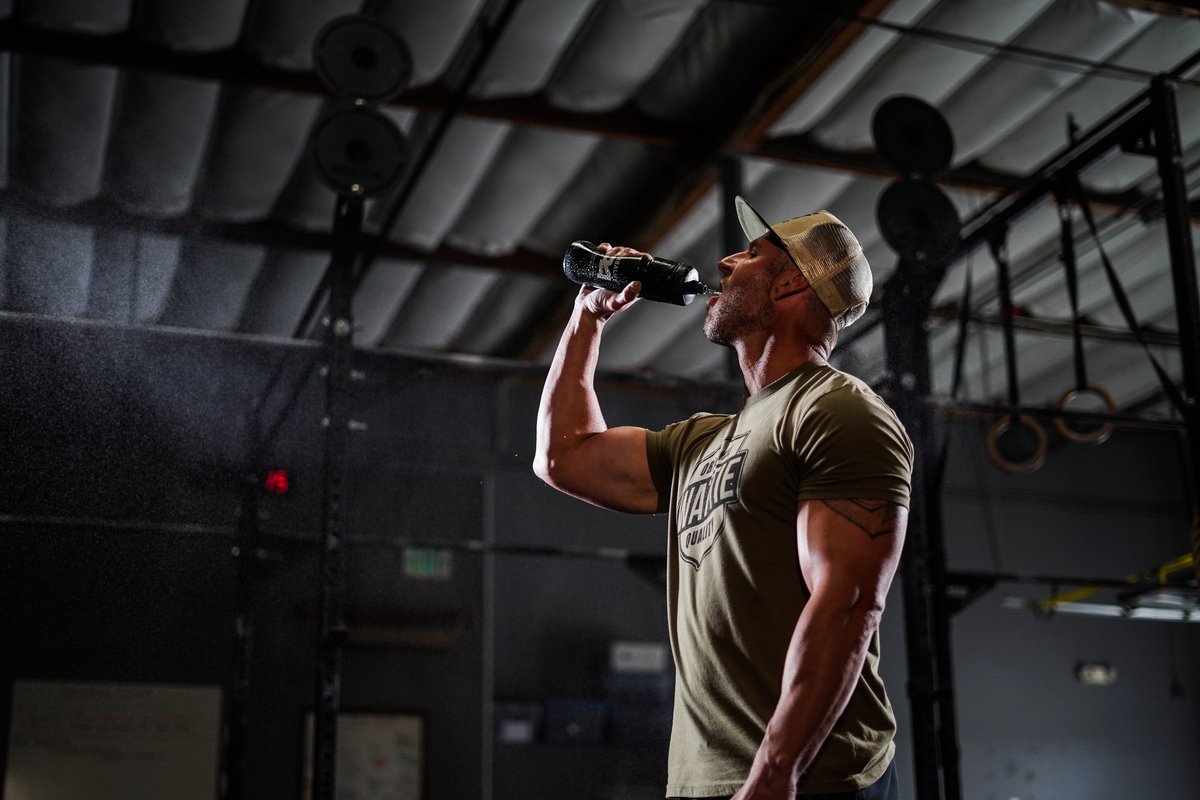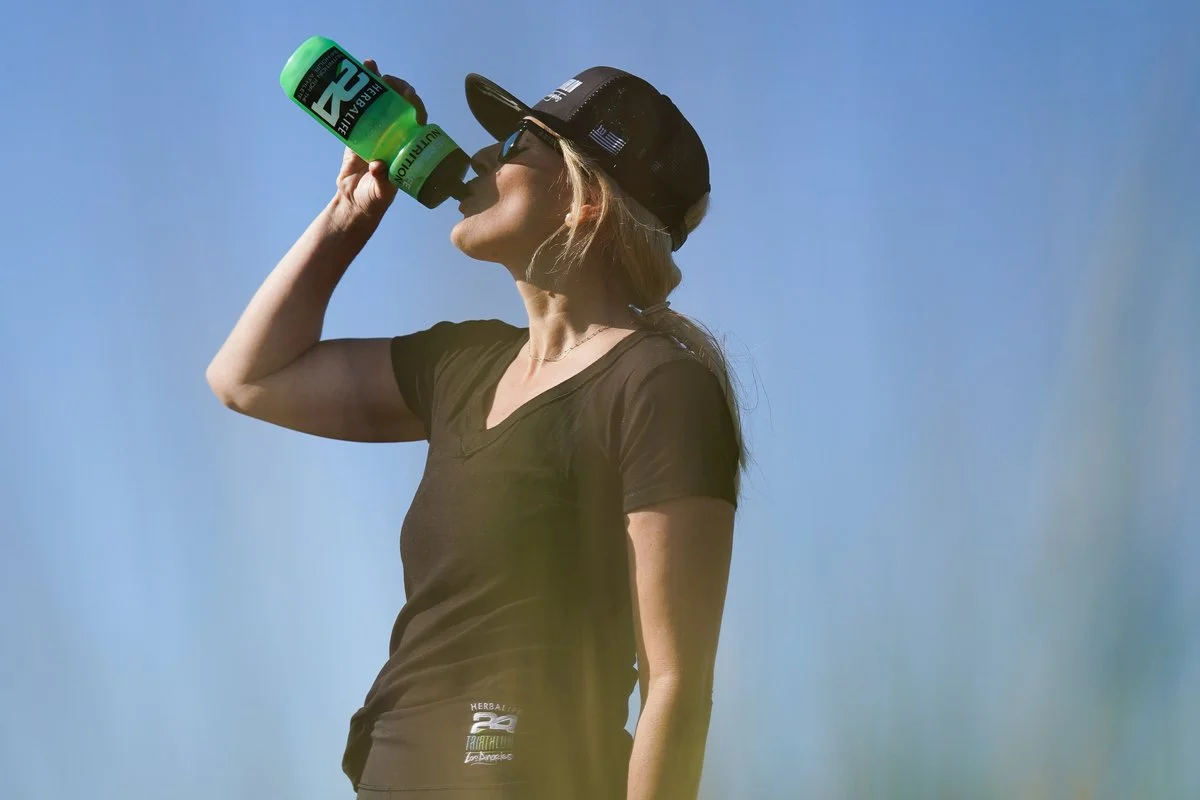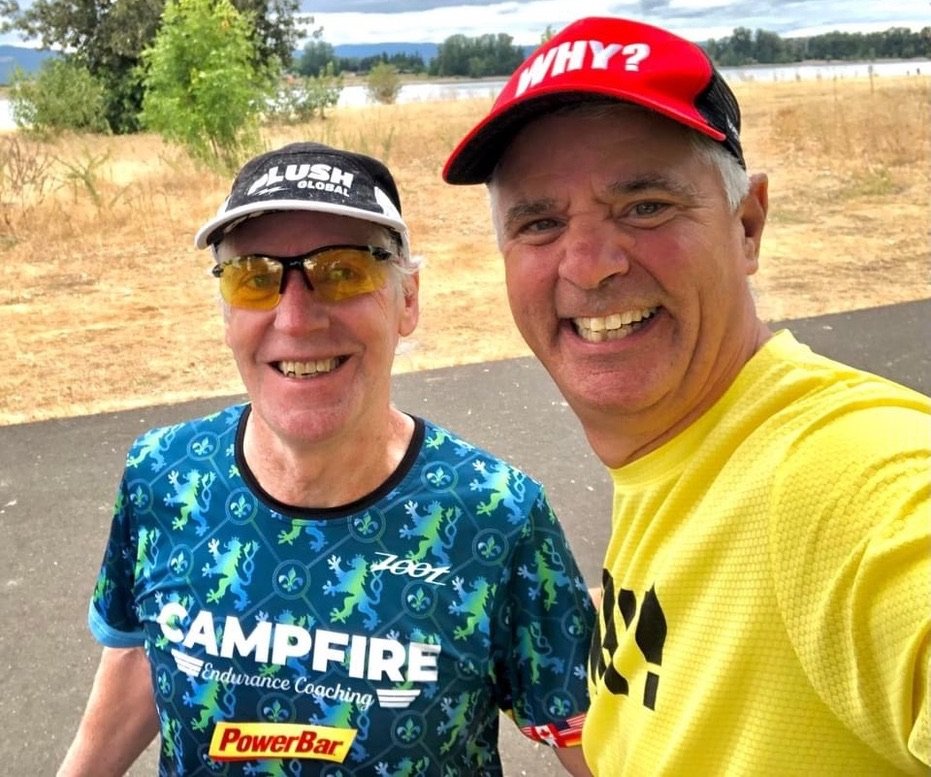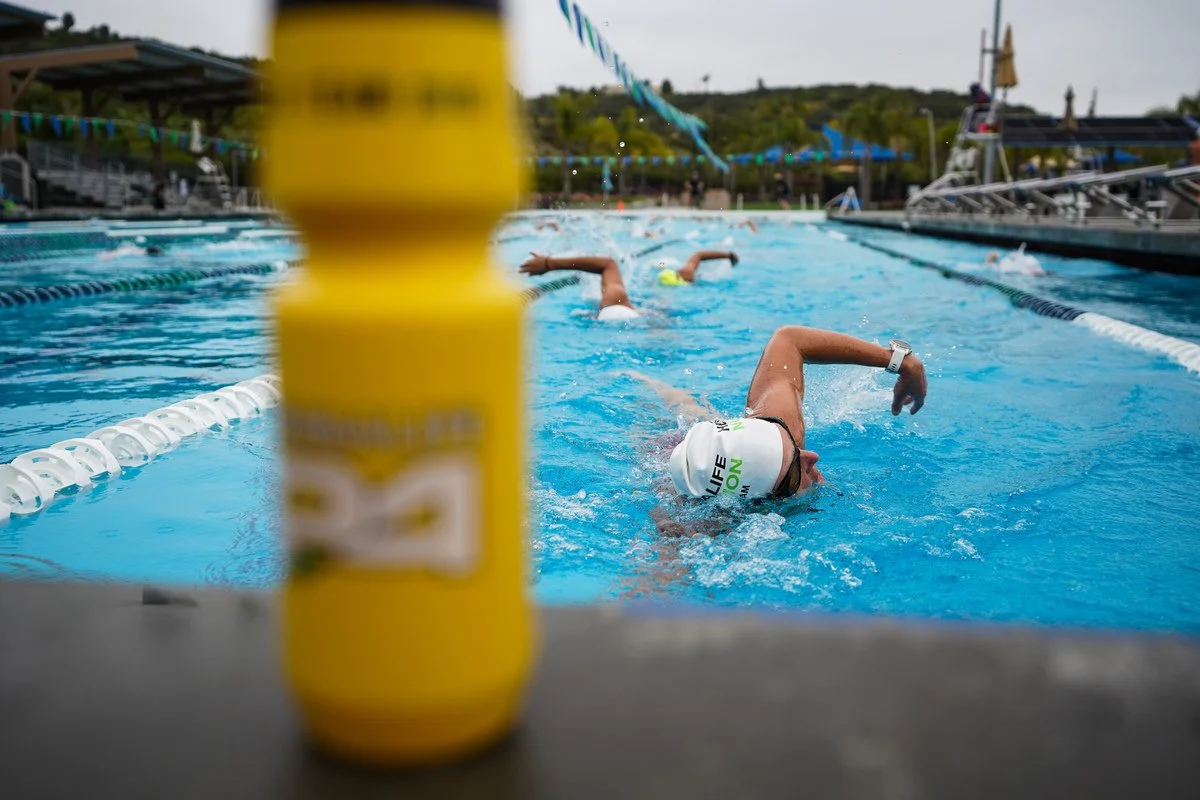What Do You Eat AFTER A Triathlon Workout?
Recovery is not just about protein intake
by Katie Elliot, MS, RD, USAT Coach
To get the most out of your workouts, you should prioritize what you eat directly after a workout. During a swim, bike, run, strength, or cross-training session, you break down muscle fibers, the repair of which enables you to realize fitness gains. In order to optimize those repairs, you need to get the right amount of macronutrients in your system at the right time. Improving your recovery nutrition is a little bit like buying a bike and getting a wheel upgrade at no extra cost. You got a whole lot more than your baseline investment.
Let’s begin with what happens to you during tough workouts. During exercise, you use carbohydrate and fat to fuel activity. Protein only accounts for 4-10% of energy utilization, and is not a significant source of fuel during training and racing. While fat stores are abundant, there are only 1,600 to 2,000 calories worth of stored carbohydrate in the muscles and liver. After a tough session, you need to replenish the carbohydrate you used in order to function during your next session (to say nothing of functioning throughout your work day). Studies have shown that continuing to deplete carbohydrate stores throughout a tough training week causes a real decline in performance. Beyond performance, a lack of necessary carbohydrate during- and post-workout also stresses the immune system, setting you up for sickness.
In addition to carbohydrates, the body needs amino acids from protein after tough training. Even though we don't use protein much during training, we need it to fix the system after training. Leucine, a branched-chain amino acid, is particularly important for recovery in athletes, and female athletes in particular. Leucine stimulates the system that initiates repair (mTOR) and is most strongly associated with muscle adaptation. Finally, it is important to note that pairing protein and carbohydrate after a workout improves recovery more than having just one of these macronutrients alone.
How Much?
Exact amounts of what you need to recover from your training depends on a few factors:
1. Length and intensity of the workout
2. Your age
3. Your size/mass
4. Potentially your sex
If you are a recreational athlete doing light training (e.g. 45 minutes on the elliptical or an hour easy spin and no additional workouts), you have plenty of time to replenish with meals. While it would be ideal to time your meals right after workouts, you don’t need to pay as much attention to precise quantities of protein and carbohydrate. This rule of thumb also applies to athletes in off-season or in low-volume training periods. In contrast, if you have a tough session with intensity, a long workout, or multiple sessions in a day, you do need to ensure you hit fueling targets post-workout.
Image courtesy of Dylan Haskin
Males < 40 Years of Age
Right after a quality workout, a long training session, or a day with multiple workouts, have a meal or snack with carbohydrate and protein. To figure out your baseline needs for carbohydrate, multiply your body weight in kilograms (kg) by 1-1.2 grams (g). Plan to include at least 15-25g of high-quality protein (contains all the essential amino acids) with at least 2.5g of leucine. The ideal recovery window is 30 minutes after a workout regardless of age or sex. For example, a 25-year-old, 175-pound (79.5kg) male needs at least 80g of carbohydrate and 15-25g of high-quality protein (containing all the essential amino acids) with at least 2.5 grams of protein coming from leucine.
Image courtesy of Dylan Haskin
Females < 40 Years of Age
There is some evidence suggesting that women need more protein post-exercise than men of a similar age. In women, estrogen may inhibit muscle protein synthesis, and progesterone causes muscle to break down more quickly. Some studies suggest that women can improve muscle protein synthesis by ingesting a little bit more protein (approximately 30g post-activity) along with 1-1.2g carbohydrate per kilogram body weight. In addition, women need to be sure they are getting enough leucine. Aim for at least 2.5g leucine after a strenuous, key workout. The ideal recovery window is within thirty minutes of a workout regardless of age or sex. For example, a 35-year old, 135-pound (61.4kg) female needs at least 61g carbohydrate and 30g of high-quality protein (containing all the essential amino acids) with at least 2.5 grams of protein coming from leucine.
Males and Females > 40 Years of Age
Studies suggest that middle-aged and older athletes need more protein to recover and rebuild than their younger counterparts. Basically, it takes more and the right type of protein to effectively signal the muscle rebuilding cascade mTOR to get going. Researchers believe these changes in the muscle repair process begin in our 40’s or 50’s (i.e. right at the Masters cutoff for triathletes). Thus, Masters athletes need 35-40g protein to trigger the same muscle repair response post-exercise. Timing is also important. After strength training, interval training or a long session you should have a recovery meal within thirty minutes of exercising. Similar to other groups, Masters athletes need to consume high-quality protein and should take in at least 2.5g leucine post-workout. For example, a 60-year old, 145-pound (65.9kg) female athlete needs at least 66g carbohydrate and 40g of high-quality protein (containing all the essential amino acids) with at least 2.5 grams of protein coming from leucine.
Recovery Meal Ideas
Here are a couple of sample recovery meals. Look at carbohydrate and protein totals and customize amounts based on your individual needs as referenced previously:
Vega One Sport Protein + 2 cups almond milk + 1 cup strawberries + 1 banana + 1/4 cup granola (62g carbohydrate, 40g protein, 3.1g leucine [depends on brand of protein powder])
1 1/4 cups Greek yogurt + 1/3 cup granola + dried tart cherries (~65g carbohydrate, 25g protein, 2.5g leucine)
One slice of Dave’s Killer bread + 1 cup spinach + 1egg/1 egg white scramble + salsa + small apple + 16 oz. glass of 1% milk (~65g carbohydrate, 32g protein, 2.5g leucine)
Cocoa Elite Everyday Cocoa Whey + 2 cups milk + 1 cup strawberries + 1 banana + 1/4 cup granola (~76g carbohydrate, 45g protein, 3g leucine [depending on brand of protein powder])
Bowl with 1 cup brown rice + 1 cup spinach + 1/2 sweet potato + 5 oz. chicken + apple + vinaigrette (~90g carbohydrate, 53g protein, 4g leucine)
2 corn tortillas + 2 eggs + 1 cup black beans + 1 small red bell pepper + 1/2 cup brown rice + salsa (90g carbohydrate, 53g protein, 4g leucine)
Protein Pacing is also Important
Protein pacing, or eating mostly equal quantities of protein at all meals and snacks throughout the day, is another important aspect to recovering well. By eating equal amounts of protein at each meal, you keep your blood amino acid concentrations high. This will help with continued repair throughout the day and night. In general, 15-25 grams of protein at all meals and snacks is ideal, although exact amounts vary depending on your size, body composition goals, etc.
Image courtesy of Dylan Haskin
Don’t Forget about Rehydration
Rehydration is another key component of recovery nutrition. The average athlete loses 1.2 liters of sweat per hour of exercise. While taking in fluids offsets some of these losses, athletes rarely replace 100% of losses during training. If you fail to rehydrate after a swim, bike, or run, you put yourself at a disadvantage for subsequent workouts. For every pound that you lose during training, drink 16-24 ounces of fluid. You can weigh yourself before and after a workout to determine your total weight loss from sweat. Plan on drinking water alongside meals or adding electrolytes (like Nuun or Precision Hydration non-caloric effervescent tabs) for maximum fluid absorption.
Sleep Matters Too
Even though this article is focused on nutrition, we couldn’t fail to mention sleep. We are beginning to uncover just how important sleep is to performance. In the journal Sleep, researchers detailed the results of a study showing that athletes who slept poorly had noticeable declines in split-second decision making abilities (think cycling safety and “go, no go” decisions to chase a passing racer). We also know that sleep affects metabolism, appetite, and ultimately body composition, which are important factors to triathletes. Lack of sleep also negatively affects immunity, which can predispose an athlete to illness. Poor sleep is also associated with decreased production of carbohydrate stores. Finally, lack of sleep may also cause decreased muscle protein synthesis, which dampens the results of training and negatively affects recovery. In other words, prioritize sleep and think twice before skimping on zzzz’s for early swim, bike and run sessions.
Conclusion
No matter your age, nailing recovery consistently will maximize your training benefits with regards to performance. Remember, races can, and generally are, won by small margins. Paying attention to details that matter (like sleep and nutrition) can significantly move the needle as you try and achieve your personal triathlon goals. If you are willing to pay attention to the details, your highest aspirations can become a big reality.
Katie Elliott, MS, RD, USAT Coach is the founder of Elliott Performance and Nutrition, based in Aspen, Colorado. Katie works with clients nationwide via tele-health and also does counseling and exercise testing at Achieve Health and Performance in Basalt, Colorado. Katie’s knowledge areas and counseling specialties include sports nutrition, nutrition for the prevention and treatment of disease, weight loss, and worksite wellness.






